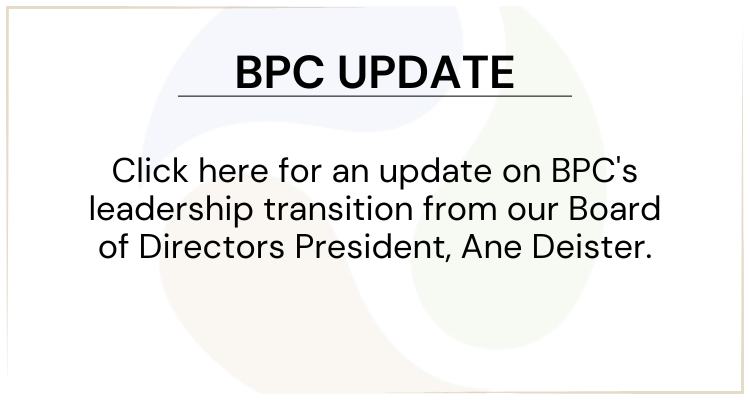Governor Brown recently signed Senate Bill 1094, prescribing how state and local agencies and private organizations should hold and manage lands and associated endowment funds provided by project proponents to mitigate the impacts of their projects on wildlife habitat and other natural resources. The bill, which the Legislature passed as an urgency measure so it will take effect immediately, promises to break a logjam of mitigation efforts held up in recent years owing to objections and uncertainty over who should handle endowment funds that, properly invested, provide the revenue needed to manage mitigation lands.
When federal, state, and local agencies approve land use projects, they commonly require project proponents to mitigate the environmental effects of their projects on wildlife habitat, wetlands, and other natural resources by setting aside suitable lands to offset those effects, protecting those lands by limiting their use under conservation easements or similar restrictions, and providing sufficient endowment funds to pay for management of the lands in the future. For years, project proponents and agencies called on various public and private organizations, including land trusts, to hold and manage such lands and funds. Typically, land trusts or other such organizations invest the endowment funds and use the investment revenue to pay for monitoring and managing the preserved lands and habitats, fixing fences, controlling invasive species, removing debris, preventing trespassing, etc.
That changed a few years ago when the California Department of Fish and Game deemed endowment funds it required of project proponents to be “state” funds and then maintained that it lacked the authority to allow private entities to hold such funds. The Department, though, was ill equipped to hold and manage the funds itself, and nonprofits and other entities generally balked at assuming responsibility for managing mitigation lands without also controlling the funds and revenue needed to pay for their management efforts. To remedy the resulting curtailment of mitigation opportunities, the Legislature passed SB 436 in 2011, expressly authorizing state and local agencies to allow special districts and qualifying nonprofits that hold and manage mitigation lands to also hold and manage the associated endowment funds. It required state and local agencies to exercise due diligence in reviewing the qualifications of the entities to manage the lands and funds.
Problems nonetheless persisted. Claiming to lack resources and expertise to review qualifications to manage endowment funds, the Department generally declined to do so. Efforts to mitigate impacts to wildlife habitat, at least those requiring the Department’s approval, generally slowed to a crawl.
SB 1094, introduced by Senator Christine Kehoe of San Diego, amends the law in various ways designed to revive mitigation opportunities and efforts. It relieves the Department and other agencies of the burden of exercising due diligence in reviewing the qualifications of entities to manage endowment funds by removing that requirement from the law. If a state or local agency chooses to review such qualifications, it may charge the project proponent the reasonable costs of doing so. A local agency may hire a qualified consultant to conduct such a review.
The bill increases the protection afforded to endowment funds, requiring that they be “held as charitable trusts that are permanently restricted to paying the costs of long-term management and stewardship of the mitigation property for which the funds were set aside.” By this provision, the bill enables the Attorney General to oversee the management of endowment funds through its program regulating charitable trusts.
The bill modifies the requirements that an entity holding endowment funds must meet. Such an entity must certify that it has the capacity to effectively manage the funds and achieve reasonable rates of return on investment of the funds, it uses generally accepted accounting practices prescribed by pertinent statutes, it is able to ensure that funds are accounted for with respect to a specific property, it is a nonprofit organization, community foundation, or congressionally chartered foundation, and it has an investment policy that is consistent with California’s statute on management of institutional funds. The entity must also provide the state or local agency that required the endowment with an annual fiscal report detailing the status of the endowment.
The bill also expands the types of entities that can hold endowment funds and the circumstances where endowment funds can be held by an entity other than the one holding and managing the mitigation lands. Under SB 436, endowment funds generally could be held by the agency that required the mitigation or by a special district or nonprofit that held the mitigation lands; exceptions were made for funds held under earlier arrangements in a natural community conservation plan pursuant to the Natural Community Conservation Planning Act or a safe harbor agreement pursuant to Safe Harbor Agreement Program Act. SB 1094 adds to the mix, authorizing a community foundation or congressionally chartered foundation (e.g., the National Fish and Wildlife Foundation) to hold endowments under certain circumstances.
The Governor’s signing of SB 1094 culminates several years of effort to resolve regulatory constrictions on the ability of agencies and project proponents to mitigate the environmental effects of projects in California. SB 436, enacted last year with the same aim, fell short of solving the problem. SB 1094 seeks to correct and improve the law introduced by SB 436, and thus break the logjam that has long held up mitigation efforts throughout the state.
Briscoe Ivester & Bazel LLP
155 Sansome Street, 7th Floor
San Francisco, CA 94104
Telephone: (415) 402-2700
Fax: (415) 398-5630
Disclaimer: In our Newsletters and Bulletins, Briscoe Ivester & Bazel LLP intends to present general information to the public and does not intend to provide legal advice pertaining to a particular situation.


